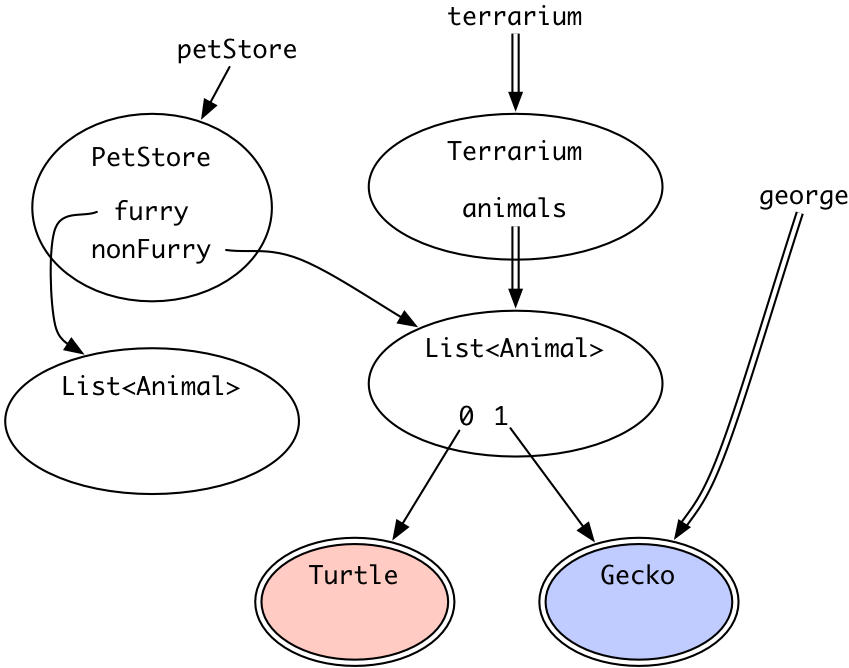Immutable Strings: A Key Component in Ensuring Information Consistency and Dependability
In the world of information monitoring, the significance of unalterable strings can not be overemphasized. The concept of unalterable strings goes beyond simple formality; it is a cornerstone in the facility internet of data administration.
The Principle of Immutable Strings
Unalterable strings, a fundamental concept in programs, refer to strings that can not be customized as soon as they are produced. In significance, once a string value is assigned, any type of procedure that appears to customize the string in fact produces a new string. This immutability makes certain data uniformity and reliability in applications, as it avoids unforeseen adjustments to the original data.
Advantages in Data Consistency

Information uniformity is essential in different elements of software advancement, including data source management, multi-threaded atmospheres, and dispersed systems (Why are strings immutable in Java?). Unalterable strings contribute dramatically to attaining this consistency by preventing information corruption due to simultaneous accessibility. In circumstances where numerous procedures or threads connect with the exact same data concurrently, unalterable strings work as a secure against race problems and synchronization concerns
In addition, the immutability of strings simplifies debugging and screening procedures. With unalterable strings, designers can rely on that once a string is established, it will remain unmodified, making it easier to map the source of errors and making sure that test cases create constant outcomes. This reliability in information handling inevitably leads to much more robust and secure applications.

Executing Unalterable Strings
Making sure the immutability of strings requires a thoughtful method to their execution in software development. One essential approach is to design string courses in a way that avoids adjustments when a string object is developed. By making strings immutable, designers can improve data uniformity and reliability in their applications.
To execute unalterable strings successfully, developers need to prefer creating brand-new string things as opposed to modifying existing ones. This technique makes certain that when a string is designated a worth, it can not be altered. In addition, any type of procedure that appears to change the string should develop a brand-new string with the desired modifications as opposed to changing the initial.
In addition, utilizing unalterable strings can streamline concurrency administration in multi-threaded atmospheres. Given that unalterable strings can not be changed after creation, they can be safely shared go to the website among numerous threads without the danger of information corruption.
Duty in Integrity Guarantee
In software program development, the utilization of immutable strings plays a critical duty in ensuring the dependability of data operations. Unalterable strings, when developed, can not be changed, making sure that the information they represent stays consistent throughout the application's implementation. This immutability home offers a degree of assurance that the information being processed will certainly not be inadvertently transformed, leading to unexpected results or errors in the system.
By including immutable strings into software program layout, programmers can boost the integrity of their applications by decreasing the threats associated with mutable data - Why are strings immutable in Java?. Immutable strings aid in stopping data corruption or unintentional alterations, which can be particularly crucial when dealing with sensitive info or when information integrity is critical
Furthermore, the use of unalterable strings simplifies concurrent handling, as multiple strings can securely gain access to and share string data without the threat of one thread altering the material while one more is reviewing it. This element adds significantly to the general dependability of the software system, guaranteeing regular and predictable behavior in data managing operations.
Applications and System Combination
The smooth integration of immutable strings into different applications and systems is pivotal for guaranteeing durable data consistency and integrity across varied technical atmospheres - Why are strings immutable in Java?. Immutable strings play an important function in boosting the stability of information exchanges and interactions within complicated software environments. By including immutable strings right into applications, developers can reduce the threats linked with data meddling, unapproved modifications, and unintended modifications, therefore fortifying the see here now total safety posture of the system
In the context of system assimilation, unalterable strings offer as a fundamental element for developing safe and secure communication networks and promoting smooth data transfers between various elements. Their immutable nature makes certain that data transferred in between systems stays unchanged and verifiable, lowering the likelihood of inconsistencies or errors that can endanger the integrity of the whole system. Furthermore, unalterable strings can improve interoperability between inconsonant systems by offering a standard format for information depiction, enabling extra effective data processing and exchange methods across interconnected systems. By taking on unalterable strings in applications and system integration procedures, organizations can strengthen their data infrastructure and support the integrity and uniformity of their information properties.
Final Thought
In conclusion, immutable strings play an important role in preserving data consistency and reliability in various applications and system integrations. By making sure that strings can not be changed as soon as created, the stability of information is preserved, minimizing the danger of errors and disparities. Executing immutable strings can substantially improve the reliability of systems, inevitably resulting in even more reputable and precise information processing.
